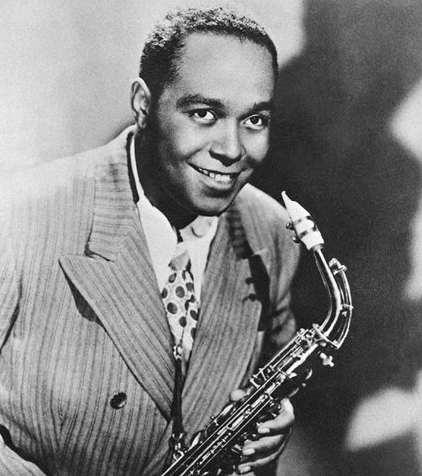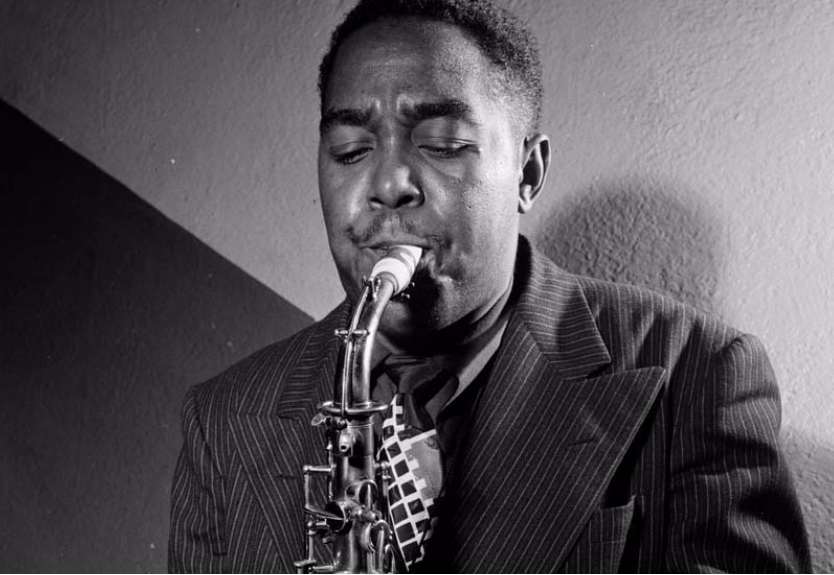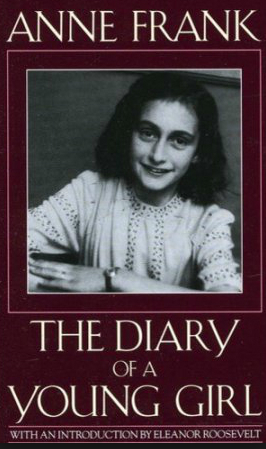It’s been over 60 years since Charlie Parker died. But if you put on just about any of his recordings, it’s hard to believe he’s been gone that long. The music still sounds fresh and exciting; there’s an invention and emotional intensity to his playing that resists age.
 Along with Dizzy Gillespie, Miles Davis, Max Roach, and Bud Powell, Parker—an important, if not the most important figure in post-war jazz— was one of the prime movies behind Bebop. With its sprung tempos, harmonic complexity, and fearless soloing, Parker rewrote the book on jazz soloing. His use of the chromatic scale gave him the freedom to snap off speedy, intricate runs that roamed over the changes with only the barest concession to the melody. It moved jazz from the era of big band dance music to music that demanded the listeners full attention.
Along with Dizzy Gillespie, Miles Davis, Max Roach, and Bud Powell, Parker—an important, if not the most important figure in post-war jazz— was one of the prime movies behind Bebop. With its sprung tempos, harmonic complexity, and fearless soloing, Parker rewrote the book on jazz soloing. His use of the chromatic scale gave him the freedom to snap off speedy, intricate runs that roamed over the changes with only the barest concession to the melody. It moved jazz from the era of big band dance music to music that demanded the listeners full attention.
 Like many innovators, Parker struggled to gain mass acceptance, Depressed and addicted, his playing suffered; by 1954 his condition had deteriorated to the point he was committed to a mental institution. When he died in 1955, the coroner estimated his age was between 50 and 60. He was 34.
Like many innovators, Parker struggled to gain mass acceptance, Depressed and addicted, his playing suffered; by 1954 his condition had deteriorated to the point he was committed to a mental institution. When he died in 1955, the coroner estimated his age was between 50 and 60. He was 34.
 Also dead this day: Anne Frank, at the Bergen-Belsen concentration camp in 1945; conductor Eugene Ormandy (1985), and the ever elegant Maurice Evans, who brought a witty savoir-faire to his roles, and is probably best known for playing Samantha Stevens father in “Bewitched,” and the sage, compassionate Dr. Zaius in the original “Planet of the Apes” movies.
Also dead this day: Anne Frank, at the Bergen-Belsen concentration camp in 1945; conductor Eugene Ormandy (1985), and the ever elegant Maurice Evans, who brought a witty savoir-faire to his roles, and is probably best known for playing Samantha Stevens father in “Bewitched,” and the sage, compassionate Dr. Zaius in the original “Planet of the Apes” movies.

Leave a Reply